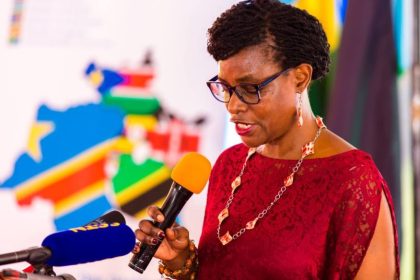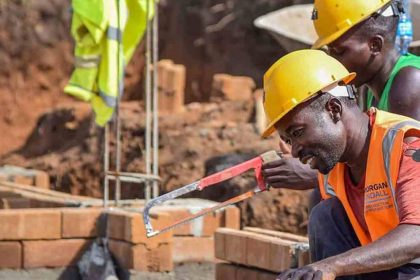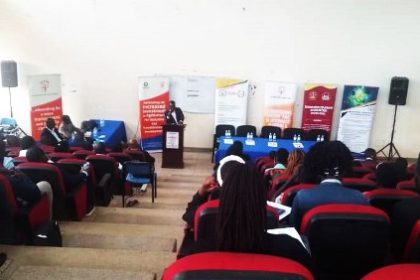Roads take up 80 pc of works ministry annual budget

Kagina was concerned by the lack of appreciation shown by many Ugandans about UNRA efforts to develop and expand the national road network.
July 16, 2018—Road construction and maintenance swallows up almost all the works ministry annual budget allocation, but the returns come by way of easier transport links that have helped improve Uganda’s trade.
While officiating at the 10th anniversary celebrations of the Uganda National Roads Authority (UNRA), works and transport minister, Monica Azuba Ntege congratulated UNRA for their contribution to Uganda’s development and promised to continue supporting the Authority so that it can offer more.
“As Government, we will continue supporting you. Actually UNRA takes 80% of the money that the Ministry gets every year. We are proud of the work you have been doing. However, you shouldn’t stop on celebration. As you travel around the country celebrating, point out areas where you can improve, we want you to achieve even much more in the next five years,” she said. UNRA decided to hold the main event in Buliisa district, where a large part of Uganda’s budding oil and gas industry is to be sited.
This financial year, just like during the past three, the works ministry will get the bulk of the national budget allocations at UGX4.8 trillion ($1.3 billion) or nearly 15 pc of the total planned government expenditure.
However Allen Kagina, UNRA executive director said many Ugandans do not appreciate how far the country has come in terms of development and its actually Ugandans who are always speaking ill of the country instead of supporting it and marketing it.
“Without the support of Ugandans, our work will be very hard. Ugandans should learn to own these projects because its their tax money that has been used to construct these roads and other major projects. So I do not understand when some Ugandans start misusing our roads like vandalising road signs,” she said.
Kagina said due an improving roads network, Uganda has closer links with its East African Community neighbours where its agricultural products have found new markets.
“Just last year, Uganda exported over 13,000 tonnes of maize to Tanzania, Kenya and Rwanda. Because of these roads, Uganda is no longer a landlocked country, there is so much that our roads have helped us to achieve but unfortunately, some people don’t look at it in that way,” Kagina said. Today, Uganda has nearly 5500 kilometres of paved roads compared less than 1000 km over 30 years ago.
Leading projects for UNRA in the coming 12 months is construction of 600 km of the so-called oil roads to improve oilfield logistics in western Uganda and the upgrading to tarmac of another 400 km of roads together with the rehabilitation of 200 km existing roads and construction of 15 bridges.
She said during the next six months, UNRA and the Ministry will hold several events, including officially launching the new Japanese-funded Jinja Bridge across the Nile as part of the celebrations. UNRA was set up in 2008 to better coordinate construction, maintenance and monitoring of Uganda’s road network.

 TradeMark Africa introduces new App to limit EAC trade barriers
TradeMark Africa introduces new App to limit EAC trade barriers
 Employer hiring up during November as Stanbic PMI rises to 53.4
Employer hiring up during November as Stanbic PMI rises to 53.4
 Shell Club rewards first winners with brand new motorbikes in Mbale
Shell Club rewards first winners with brand new motorbikes in Mbale
 CSBAG roots for increased funding for renewable energy
CSBAG roots for increased funding for renewable energy
 Equity walks tried and tested path to deliver solid half-year
Equity walks tried and tested path to deliver solid half-year
 Nile Breweries primes retailers for brave new world
Nile Breweries primes retailers for brave new world
